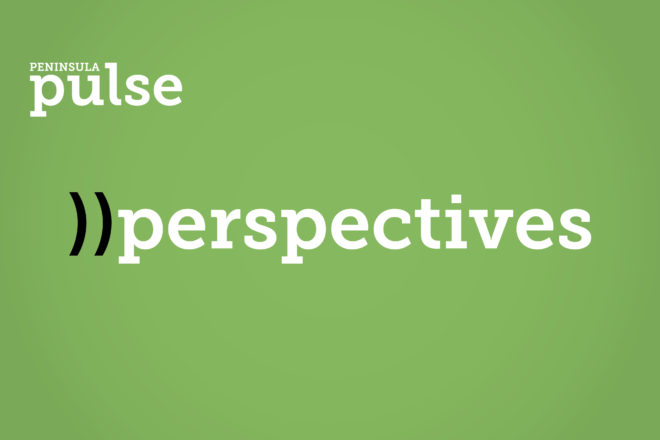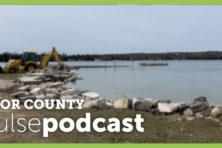YOUR RIGHT TO KNOW: Protect the Press Against Bogus Lawsuits
- Share
- Tweet
- Pin
- Share

by BILL LUEDERS
In mid-August, in my role as a press advocate, I received a call from the owner of a small, vibrant, online community newspaper who was worried about publishing a story that reflected poorly on a local business. The paper had checked and rechecked its facts, and gave the business repeated opportunities to comment. But still, the newspaper owner was afraid of being sued.

I urged the owner to publish, despite the risk; the article did run, thankfully without legal repercussions. But the risk is real: during this very same week, the New York Times reported on a small digital newspaper in Wisconsin driven to the brink of bankruptcy by a lawsuit filed by a local businessman who is now a state senator.
The newspaper, the Wausau Pilot & Review, reported that the businessman, Cory Tomczyk, “was widely overheard” using a vulgar slur to refer to a 13-year-old boy at a county board meeting in August 2021. Tomczyk denied doing so, and sued for defamation. Three people swore they heard him use the slur at the meeting, which he admitted to using on other occasions. He was elected to the state Senate last fall.
In April, Marathon County Circuit Court Judge Scott M. Corbett ruled strongly in the paper’s favor. He concluded that Tomczyk, a former school board member, was a public figure and thus needed to prove the outlet knew what it reported was false or else acted with reckless disregard for whether or not it was true. But, in fact, Corbett wrote, “it is not possible to find that the defendants had serious doubts” about the article’s veracity.
Tomczyk has appealed, forcing the Pilot & Review to incur additional expense that it cannot recover, even if it prevails again. Shereen Siewert, the newspaper’s founder and editor, has placed the lawsuit’s costs at nearly $200,000, more than the four-person newsroom’s annual budget.
A Go Fund Me page and other donations have raised about $140,000 to keep the Pilot & Review afloat – or a-flying, as the case may be.
“It’s an enormous relief,” Siewert told me, “but it’s also sickening when I think about where that money could be going instead of legal fees.”
Groups including the Wisconsin Newspaper Association and national Reporters Committee for Freedom of the Press have pledged assistance, and two law firms have agreed to do pro bono work, although the paper is keeping its own attorneys. Tomczyk’s first brief is due in early October and Siewert expects “a long road ahead” as the case drags on well into 2024.
State Sen. Melissa Agard, D-Madison, and Rep. Jimmy Anderson, D-Fitchburg, have introduced anti-SLAPP legislation (the acronym stands for strategic lawsuits against public participation), similar to laws on the books in 31 other states. The Wisconsin bills, SB 414 and AB 423, would let judges dismiss frivolous lawsuits and make those who bring them pay the defendants’ legal fees.
Siewert calls the proposed legislation “long overdue in Wisconsin and especially crucial for independent journalists and organizations.” Its sponsors, so far all Democrats, have asked for a hearing, but observers see that as unlikely, given that the precipitating action concerns a GOP lawmaker. (Tomczyk has rebuffed requests for comment, including one for this piece.)
That is short-sighted and foolhardy. Local news outlets serve an invaluable function and deserve protection against those who seek to shut them up. In 2010, the legislature put politics aside and passed a bipartisan shield law to protect journalists from revealing their sources. It should do so again to protect media outlets from being sued into oblivion – no matter who is doing the suing.
Your Right to Know is a monthly column distributed by the Wisconsin Freedom of Information Council (wisfoic.org), a nonpartisan group dedicated to open government. Bill Lueders is the group’s president.

